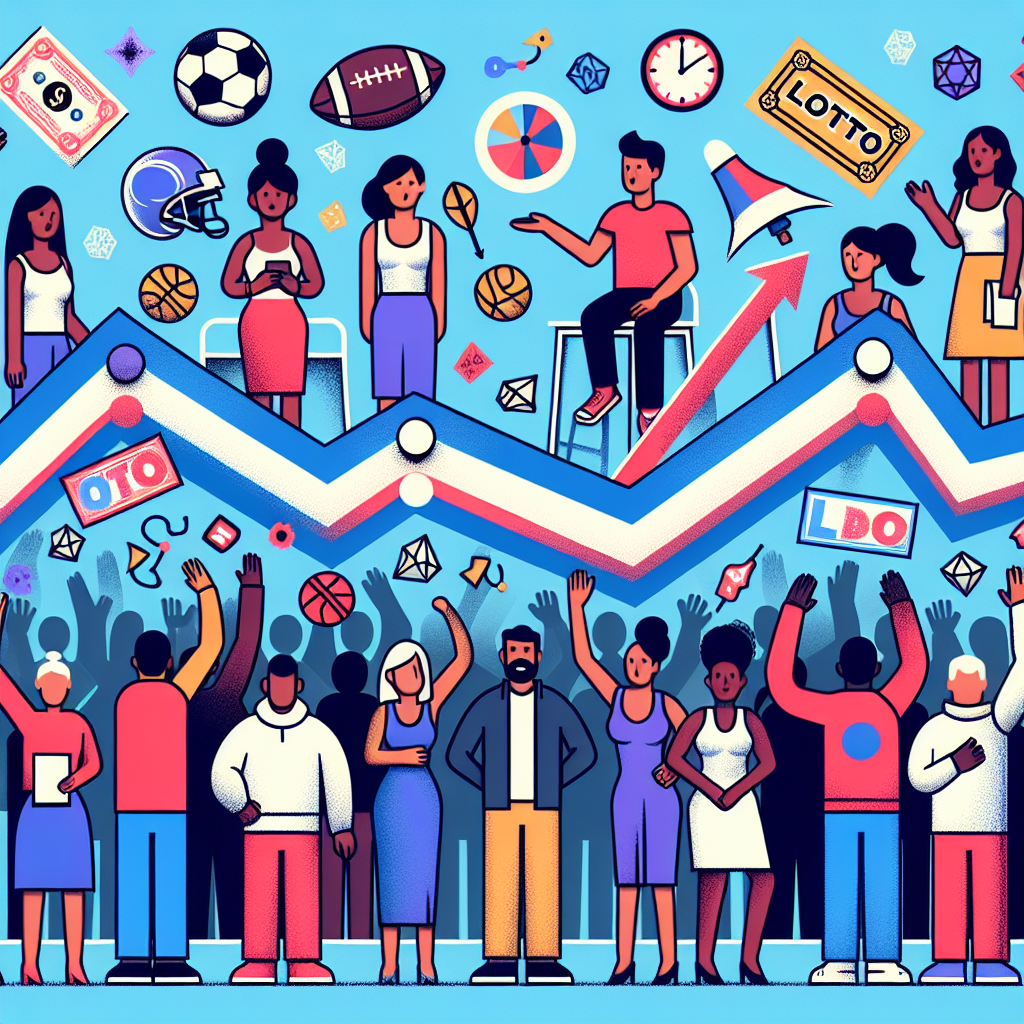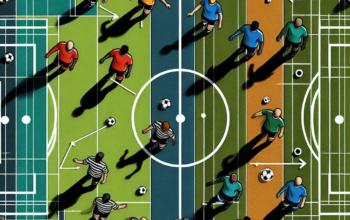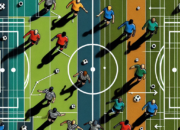The Influence of Public Opinion on Sports Betting Outcomes
In the ever-evolving world of sports betting, public opinion plays a pivotal role in shaping outcomes. From the betting lines set by bookmakers to the movements in odds, the collective sentiment of fans and analysts can impact how events unfold on the field and in the betting markets. In 2025, as sports betting continues to grow in popularity and legality across various states and countries, understanding the nuances of public sentiment becomes crucial for bettors, operators, and enthusiasts alike. This article delves into the intricate relationship between public opinion and sports betting outcomes, examining how perception, trends, and media influence betting behaviors.
The Role of Public Sentiment in Sports Betting
The influence of public opinion on sports betting outcomes is multifaceted, impacting everything from how odds are set to the types of bets that are popular at any given time. Bookmakers often take into account current public sentiment when establishing betting lines. If a particular team gains significant media attention due to a winning streak or standout player performances, the odds may shift to reflect the influx of bets from enthusiastic fans. This reaction is both a protective measure for bookmakers and a reflection of how deeply public sentiment can resonate within the betting community.
Moreover, public sentiment is not static; it evolves with each game played, injury reports, and even off-field controversies. For example, if a star player is injured, the public perception of the team’s chances can drastically shift, resulting in a corresponding change in betting lines. This fluidity underscores the fact that sports betting cannot be divorced from the emotions and opinions of fans, who often wager based on hope or allegiance rather than purely on statistical analysis.
Media Influence on Public Opinion in Betting
In the digital age of 2025, media outlets, social media platforms, and online sports analysts wield significant influence over public opinion related to sports betting. The constant barrage of information, from breaking news to in-depth analyses, shapes what bettors think about potential outcomes. For instance, a viral tweet from a credible sports journalist can sway public sentiment and result in a surge of bets for a previously underestimated team. This is why savvy bettors often monitor media coverage closely to gauge shifts in public opinion that could signal profitable betting opportunities.
Furthermore, the role of social media in disseminating information cannot be overstated. Betters interact, share insights, and react to ongoing developments in real time, creating a dynamic environment where public sentiment can shift rapidly. Platforms like Twitter and Reddit have become central hubs for discussing betting strategies, and industries now often track sentiment analysis to adjust odds accordingly. This interconnection between media coverage, social engagement, and betting behavior illustrates how public opinion is a driving force behind betting outcomes.
Behavioral Economics and Sports Betting
The intersection of public opinion and behavioral economics provides a fascinating lens into the sports betting landscape. Bettors are not always rational; they often rely on cognitive biases and emotional responses when placing bets. For instance, the “bandwagon effect,” where individuals gravitate toward the popular choice, can heavily influence the betting frenzy surrounding favored teams. This can lead to exuberantly skewed betting lines that may not accurately represent a team’s true probability of winning, but rather reflect the overwhelming support from the public.
Additionally, the concept of “confirmation bias” can affect betting outcomes. Bettors may seek out information that confirms their pre-existing beliefs about a team or player while dismissing contrary evidence. This psychology reinforces betting trends based on public opinion rather than objective performance metrics. As a result, operators must carefully consider these psychological factors when setting odds, as public inclination can lead to inflated expectations that do not align with actual performance.
The Role of Betting Models and Public Opinion Integration
Incorporating public opinion into betting models is becoming increasingly vital for operators in the competitive betting landscape of 2025. Advanced algorithms now combine traditional statistical analysis with data gleaned from social sentiment analysis and media coverage. By integrating public perception, operators can create more nuanced betting lines that can accurately reflect both expert insights and public sentiment.
These sophisticated models can also highlight opportunities for “value betting.” When public opinion strongly favors one side, odds may stretch too far in its favor, creating an opportunity for smart bettors who can either exploit this misinformation or predict a potential shift in sentiment. Recognizing discrepancies between traditional performance metrics and public perception can yield profitable betting outcomes.
Moreover, the integration of emerging technologies, such as artificial intelligence and machine learning, allows for continuous adaptation to shifting public sentiment. By constantly analyzing social media trends, market movements, and consumer behavior, betting platforms are able to refine their offerings and align them more closely with the current pulse of public opinion. This adaptability will be crucial for staying relevant in the rapidly evolving sports betting environment.
Future Trends: The Evolving Influence of Public Opinion
Looking ahead, the influence of public opinion on sports betting outcomes is likely to expand with the advent of new technologies and more widespread access to betting platforms. The rise of predictive analytics tools and fan engagement apps will empower bettors by offering real-time insights into public sentiment. This democratization of information is expected to level the playing field between casual bettors and seasoned professionals. As more information becomes accessible, public opinion will likely carry even more weight in shaping betting outcomes.
Additionally, the ethical implications of public opinion in sports betting will garner growing attention. As legal frameworks around sports betting become more established, regulators are increasingly focused on transparency and the potential for public manipulation. Sports media outlets and betting platforms may face scrutiny regarding their influence on public opinion and how it impacts fair play within the betting landscape.
Finally, the relationship between public opinion and sports betting will likely evolve alongside changing social dynamics, including shifts in cultural attitudes and demographic trends. As younger generations begin to dominate betting markets, their preferences will shape public opinion in new ways, influencing what teams and events receive the most attention. Understanding these evolving dynamics will be key for operators seeking to engage with customers and maintain their competitive edge in an intricate betting environment.
Conclusion
The impact of public opinion on sports betting outcomes cannot be overstated. It shapes betting lines, influences bettor behavior, and ultimately plays a pivotal role in the outcomes of not just games, but also financial decisions made within the industry. By exploring the intricate ties between sentiment, media influence, behavioral economics, and future trends, bettors and operators can gain valuable insights into optimizing their strategies. As the sports betting landscape continues to grow and evolve in 2025, staying attuned to the moods and opinions of the public will be essential for success.
FAQs
How does public opinion impact betting lines?
Public opinion can lead to significant changes in betting lines, as bookmakers adjust odds to manage risk and reflect the betting activity driven by public sentiment.
In what ways does social media affect sports betting?
Social media can rapidly shift public opinions through the dissemination of news, rumors, and analyses, influencing betting behavior and market trends.
What are common psychological biases affecting sports bettors?
Bettors often exhibit biases such as the bandwagon effect, where they favor popular teams, and confirmation bias, where they seek information that supports their existing beliefs about outcomes.
Will technology continue to change the relationship between public opinion and betting?
Yes, as technology evolves, predictive models and AI will increasingly incorporate public sentiment into betting outcomes, shaping the betting landscape in innovative ways.
How will future trends in sports betting look in terms of public opinion?
Future trends are likely to see enhanced integration of public opinion with analytics, greater emphasis on ethical considerations, and adaptation to the preferences of emerging demographics.






